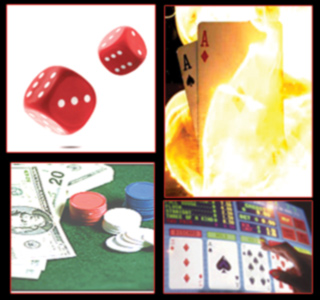
There are different ways of gambling and there are various types of gambling. There are gambling games like casino gambling, table games, electronic gaming like slot machine, video poker. However, there are other non-casino gambling games too. Some of them are card games, coin tossing, and dice-based games. There is also fixed-odd gambling, parimutuel betting, sports betting and arbitrage betting.
According to a new research, the crushing urge to gamble perhaps can be to de-stress tension and just not to win easy money. Dave Clarke, a psychologist from New Zealand has gathered information through around 150 students and startlingly found high number of students to be problem gamblers.
Around 17% belonged to this category, which extends to a greater percentage of this age group in the wider community.
Dave Clarke had imagined that winning money is a crucial factor for encouraging and motivating an individual for continuing the game. But through the sample of problem gamblers it was seen that these gamblers were always looking out for ways to release their tensions.
And problem gamblers were likely to be depressed and impulsive. The reason to gamble was to release tension. There was also an impression that the young gamblers’ parents gambled a lot too. The problem is that the gamblers wanted a place of importance or wanted first preference or priority in their life and so were not sure of what they achieve out of gambling.
Similarly most of the addictions involve a pleasant experience and through such activities a person would gain temporary relief which only reinforces the behavior, says Clarke.
The findings of the study have already been published in the Journal of Gambling Studies.
